9 ways to attract and retain software engineers in 2025
.jpg)
We have experienced a turbulent IT market both locally and globally over the past year, resulting in reduced hiring interest from employers. While the demand for engineering talent remains highly competitive, the biggest challenge last year wasn’t just attracting skilled professionals – it was retaining them. Great engineers don’t just bring technical expertise; they contribute to the culture, drive innovation and keep momentum going. Losing them doesn’t just hurt; it can disrupt teams and projects in significant ways.
Retention is about more than perks and compensation. It’s about creating an environment where engineers feel valued, supported and excited about their work. At Enlight Engineering, we’ve maintained a retention rate above 95% over the past few years and a median employee tenure of 4 years – more than double the average for European tech companies, according to some available reports. Drawing from this experience, we’re sharing key insights on what works to attract and retain top engineers in today’s market.
1. Show engineers the big challenges they’ll work on
Great engineers are drawn to meaningful work. Offering them a chance to solve complex technical challenges, work on cutting-edge technology or contribute to something impactful can be more motivating than any flashy benefit. But let’s be honest - this isn’t always possible. So, what can be done?
When a project isn’t as challenging or complex as engineers might hope, there are other ways to create meaningful experiences. Internal projects can provide opportunities for engineers to grow and deepen their expertise, mentor colleagues, and share knowledge through internal training sessions and lectures. These initiatives help them build a stronger sense of purpose and contribution.
Be ready to tell your company’s story:
- What challenges are you solving?
- How does your work make an impact?
- Why should they be excited to join you?
It’s essential to clearly communicate what your company is about, the challenges you’re solving and the impact their work will have.
Engineers want to see how their contributions fit into the bigger picture. The best engineers see themselves as problem-solvers, not just experts in a particular language or tool.
Appeal to their curiosity and ambition to make a difference.
2. Focus on flexibility and trust over flashy perks
Flashy perks are nice, but they’re not what keeps people around.
Flexibility is what we found matters most. Engineers care about having the freedom and autonomy to manage their time, the ability to work on meaningful projects and a healthy work-life balance.
We also trust our people. Micromanaging kills motivation quickly, so we focus on results instead of controlling how work gets done. Over the years, working on long-term projects with clients from different industries, we developed The Efficient Team Culture (ETC). We stick to its principles to keep our people happy and our teams successful.
3. Focus on growth
Retaining engineers is easier when they feel they’re growing. Opportunities to learn, whether through challenging projects, cross-functional collaborations or external training are highly valued. Investing in people’s professional development not only benefits them but strengthens the entire team.
Engineers who see clear career growth are far less likely to look for opportunities elsewhere. We’ve developed several processes to support our employees’ professional growth, including development plans, defined engineer profiles, and a seniority guide that helps employees shape their professional development.
4. Ask what matters to them
Motivations vary from person to person. Some engineers prioritize working on innovative projects, while others value time for family or hobbies. Instead of guessing - ask.
Regular feedback and honest conversations about what matters most to employees help align their roles with their goals. Tailoring opportunities to individual needs shows respect and builds loyalty. How do we approach this?
First, we are conducting an annual employee satisfaction survey to assess key aspects such as work conditions, tasks, relationships with teammates and leaders, work-life balance, and more. The next step is crucial: taking action and working on improvements based on the feedback.
We also hold regular individual meetings between employees and team leaders to encourage trust and create a safe environment for open communication. Additionally, where possible, we recommend forming smaller teams, so team leaders can dedicate more attention to each team member. These actions help create satisfied and motivated employees. It's important to invest time and effort into understanding and supporting each individual.
5. Keep things transparent
Overpromising during hiring or overselling the culture can lead to disappointment – and high turnover. Being transparent about challenges, expectations, and opportunities sets the tone for a lasting professional relationship.
This honesty extends beyond hiring – it’s part of our culture. If something isn’t working, we talk about it. If someone has feedback, we listen.
6. Invest in current employees to attract future talent
Word-of-mouth is one of the most powerful tools for attracting engineers. When current employees feel respected and appreciated, they naturally become ambassadors for the company. Their stories and recommendations can help bring in like-minded talent.
So, let's conclude: Word-of-mouth referrals from satisfied employees are a powerful recruiting tool.
According to our latest employee satisfaction survey, the Net Promoter Score (eNPS) in our company reached 66. For comparison, a recent market study by Infostud found that the average eNPS for IT companies in Serbia is -6. This shows how valuable a high eNPS can be, not only for creating a positive work environment but also as a tool for attracting new talent. So, encourage your employees to maintain connections with former colleagues and communities – they could lead you to your next great hire.
7. Keep job descriptions realistic
Unrealistic job postings are a major turn-off for candidates. Instead of listing every possible skill and qualification, focus on what's truly essential for the role. Writing clear and realistic job descriptions helps attract the right candidates while showing that your company has practical and reasonable expectations.
8. Build personal connections early
Genuine relationships within the team make all the difference. Instead of a very formal interview process that might feel impersonal, try letting candidates meet some of the team members they’d be working with early on.
When candidates feel a sense of belonging and can picture themselves as part of the team, the opportunity becomes much more meaningful – and they’re more likely to join and stay.
9. Constant communication during the hiring process is important
Hiring isn’t just about finding the right candidate; it’s about creating an efficient and transparent process. Consistent communication with candidates – and between recruiters and management – ensures everyone is on the same page. It’s also crucial for the candidate's experience, allowing them to get a genuine sense of our culture through how we act and work throughout the process.
Conclusion
Attracting and retaining engineering talent isn’t about shortcuts or temporary solutions – it’s about creating an environment where they feel respected, valued and empowered. We need to recognize and respect the engineering mindset, problem-solving abilities and drive of engineers. Show them understanding and respect, and they’ll return it.
By focusing on meaningful work, authentic connections and tailored benefits, companies can not only win the battle for talent but also build teams that thrive over the long term.
Subscribe to our newsletter
Stay informed about the nearshoring and software engineering trends shaping the future of your industry.




.jpg)
.jpg)
.jpg)




